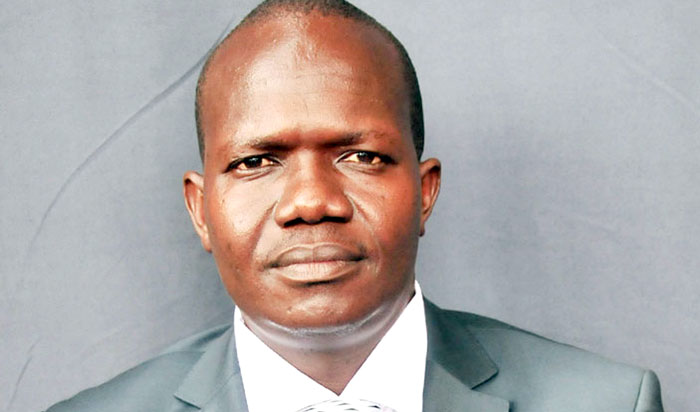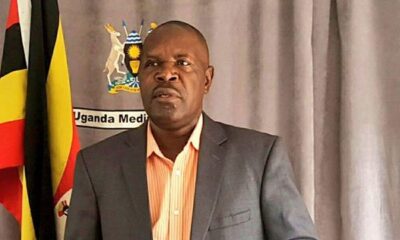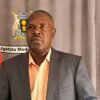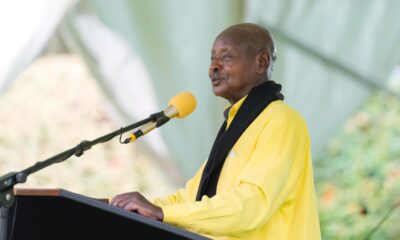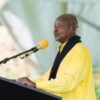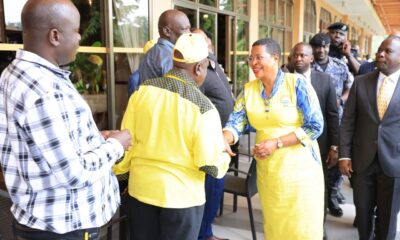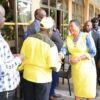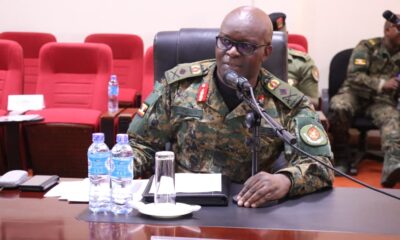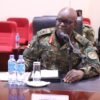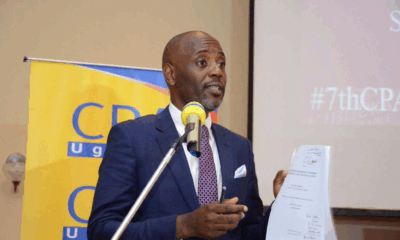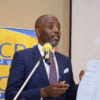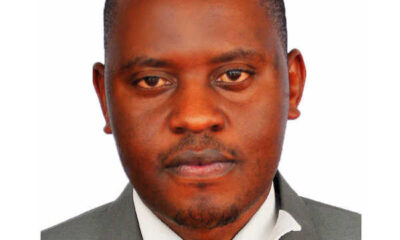News
Parliament tracks government promises
The Parliamentary Committee on Government Assurances and Implementation is one of the Accountability Committees of Parliament. As a result, its leadership is determined by the opposition in order to play the watchdog role in as far as implementation of promises by the government is concerned.
The Sunrise’s Solomon Lubambula spoke with the chairperson of the Committee and Obongi County Member of Parliament (MP) Hassan Kaps Fungaroo about the re-invigorated role of the committee since Parliament amended its rules to transform it into an accountability committee.
Question: What is the principal role of the Committee on Government Assurances and Implement ion?
Answer: Our committee scrutinizes the promises and pledges made by, particularly the President, the Prime Minister and the Ministers and presented on the Floor of Parliament. We have experts, clerks who take note of these pledges. We follow these promises by interfacing with the intended beneficiaries of the services/projects.
It means going to the people in the constituencies in the different parts of the country and with the senior Government officers who are involved, especially the permanent secretaries, commissioners and undersecretaries. We also interface with the ministries themselves where the projects fall.
Q: How have you executed this mandate?
A: So far, we have travelled to all the four major regions of Uganda. Of course, we were not able to cover all the districts, but we chose regions. For example, in the East, we covered Kapchorwa, Kween, Bugiri and Iganga where we investigated serious issues regarding poor road network. Some of the promises made in this region included the road from Kapchorwa to Suam that was made by President Yoweri Museveni in 1986. Up to now, it has not be implemented. When we interfaced with the people of Kapchorwa including the members of the district council, we witnessed a lot of bitterness from the people.
Again in Kapchorwa, we tracked the slow pace of the implementation of the construction of the high altitude athletics ground. It’s in respect to the appreciation of the role of the sons and daughters of the region that have excelled in sports and brought home medals.
Our assessment of the sports facility indicated that something is being done to tap the talents of the area given the fact that people in this region have adapted to the environment.
We however witnessed that the construction of the National High Altitude Training Centre has faced a lot of challenges.
Teso’s unfulfilled compensations
When we came to the Teso sub-region, we looked at the promises that have not been implemented over a long time.
One of the outstanding promises has been the unfulfilled compensation of people for their suffering, loss and damages they incurred during the insurgency by the Lord’s Resistance Army [and those before] which was so brutal that people were massacred in Mukura and other places.
Besides the loss of lives, property including cattle. Although the government promised to compensate them, many have lost hope. Other people, like the veteran ex-soldiers and former rebel leaders and ex-combatants, like the Arrow boys, who participated in the fight against the LRA have not been compensated. It is these unfulfilled promises that have become a source of pain in the hearts of many people.
Shoddy works overshadow a good project
Then we went to Kitgum and Gulu and looked at the implementation of projects such as Gulu market. This would have been a good project had it not been for the shoddy works. We found that the market is leaking, there is poor drainage of storm water and shortage of power. Generally the construction was poorly done and there was no value for money.
Q: What has been the impact of your committee?
A: The committee is not new. However, the previous arrangement was that the Committee chairperson would simply make a statement on the floor of the House. So we had to change the Rules of Procedure to make sure the Committee was treated like another accountability committee, such as the one of Public Accounts Committee. We have succeeded in this one, although it was a big fight because Government [Executive] was not comfortable.
Visit forces contractor to redo works
Our visit to parts of the country such as West Nile, Western Uganda and Buganda region revealed that they also have their unfulfilled promises. For example, in Nakaseke District, although the government had fulfilled the promise of building a hospital, poor workmanship, ensured that there was no value for money in Nakaseke Hospital. Because of our visit, we mansaged to ensure that the shoddy works were removed and mistakes were corrected. There was an immediate and direct intervention of the Committee that helped in sorting a promise.
What challenges have you faced?
We’ve faced a lot of resistance from Government. Some officials look at the Committee as an enemy because it goes to all people regardless of their political parties. People run to this committee reporting that the President promised this and he has not fulfilled it. And by the powers entrusted to me I can ask the President for making empty promises.
The other challenge is that promises made during the campaign have to do with the public trust. If you go and lie in the constituency, these promises are treated as non-assurances because they were not brought on the floor of the House.
We encourage MPs to bring them to Parliament and be recorded. Some MPs, particularly these from the NRM instead feel that they should follow up these pledges by going to State House or go to the NRM Secretariat which may not bring issues to the attention of the Committee. So the people feel frustrated because they gave their trust but the Government has never paid back; that is where the problem is.
The other challenge is that despite the fact that the committee has produced up to five reports, none of them has ever been debated in parliament. We have reports covering the sectors of education, health, energy, works, supply of power and transport. All these reports need to be debated so that MPs can have their input.
Q: What brings about the failure by government to implement the promises made?
A: The biggest discovery is that Government operates using the fire-fighting approach. There is no consistency and coherent formula for solving problems. Government has no priorities or it does not take people seriously in certain parts of the country. This also goes to the people themselves, why do they accept to be lied to by politicians? Politics is supposed to be a give-and-take approach.
Comments



